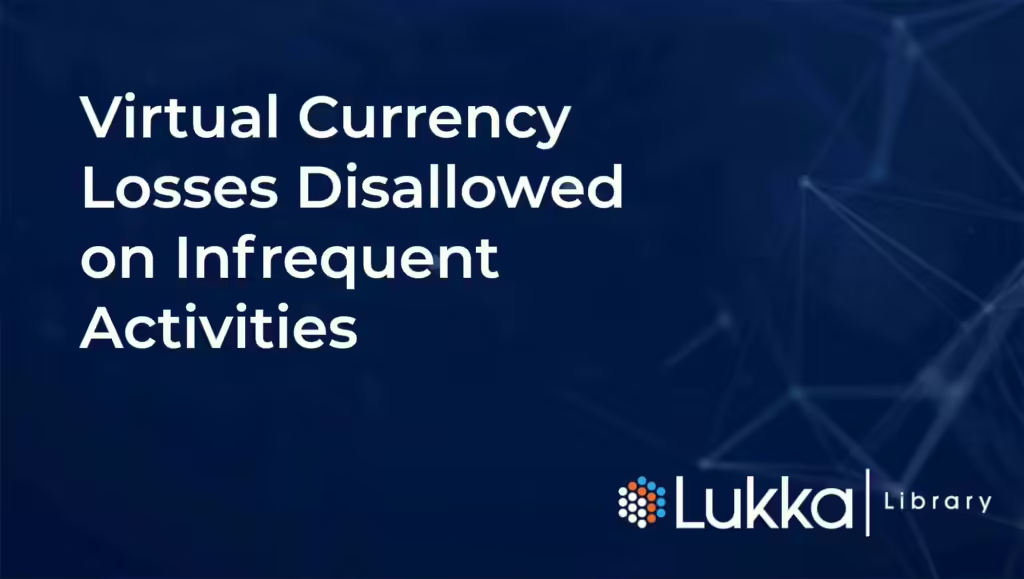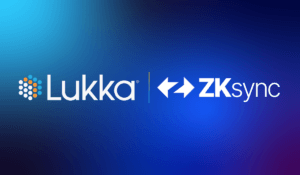
Author: Andrea S. Kramer, McDermott Will & Emery*
The statements in this document reflect guidance issued as of January 15, 2020.
A taxpayer’s losses on virtual currency transactions are not deductible if the taxpayer’s activities are too infrequent to rise to the level of investment activities, and the activities do not qualify as trader or dealer activities. In these situations, the taxpayer’s virtual currency transactions are treated as personal transactions, a hobby, or entered into for recreational use (collectively referred to as “personal use virtual currency”). Personal use transactions include buying, selling, or otherwise disposing of personal use virtual currency; using personal use virtual currency to buy goods or services; and converting personal use virtual currency into another virtual currency or a fiat currency.
Taxpayer intent when acquiring convertible virtual currency is important in determining whether the virtual currency is a personal asset. Personal use virtual currency is generally taxed as a capital asset, with some important tax differences:
- Because of tax law changes in 2017, losses from the sale of personal use virtual currency are not tax deductible.1 Gains, however, are taxable as capital gains. This means personal use virtual currency results in taxable capital gains and nondeductible losses.
- Also as a result of 2017 the tax law changes, a taxpayer cannot deduct any expenses attributable to personal use virtual currency.
- The taxpayer’s standard capital gain rate applies to personal use virtual currency. Because virtual currencies are intangible assets, they are not subject to the maximum capital gains tax rate applicable to tangible assets that are taxed as collectibles (such as coins or artworks).2
- Personal use virtual currency transactions are reported on IRS Form 8949.3
- All gains on personal use virtual currency are taxable. Based on Notice 2014-21, virtual currency is not treated as currency for federal tax purposes.4 This means that even though I.R.C. §988(e) allows individual taxpayers to exclude up to $200 of gains from personal foreign currency transactions, such a de minimis gain exemption does not apply to personal use virtual currencies.
In summary, all of a taxpayer’s gains on personal use virtual currencies are taxable at the same tax rates as the taxpayer’s other capital assets, although none of the taxpayer’s losses are deductible.
On an ongoing basis, taxpayers should evaluate their purpose in acquiring and holding virtual currency to determine whether their activities remain taxed as personal activities. Given the tax differences between personal assets and other assets, taxpayers should keep accurate records to evaluate whether their activities have changed to warrant a different tax characterization.5 If virtual currency activities qualify as investor, trader, or dealer activities, different tax rules will apply. Taxpayers should also consider potential application of other tax rules that can disallow losses, such as possible application of the wash sales rules, limitations on passive activities, and sales to related persons and entities.
1 IRS, Topic Number: 409 – Capital Gains and Losses, last updated Sept. 21, 2017, https://www.irs.gov/taxtopics/tc409, site visited January 11, 2020.
2 Topic No. 409.
3 IRS Form 8949, Sales and Other Dispositions of Capital Assets, https://www.irs.gov/pub/irs-pdf/i8949.pdf.
4 Notice 2014-21.
5 See IRS Small Business and Self-Employed Tax Center, https://www.irs.gov/business/small–business–self–employed/self– employed–individuals–tax–center.



